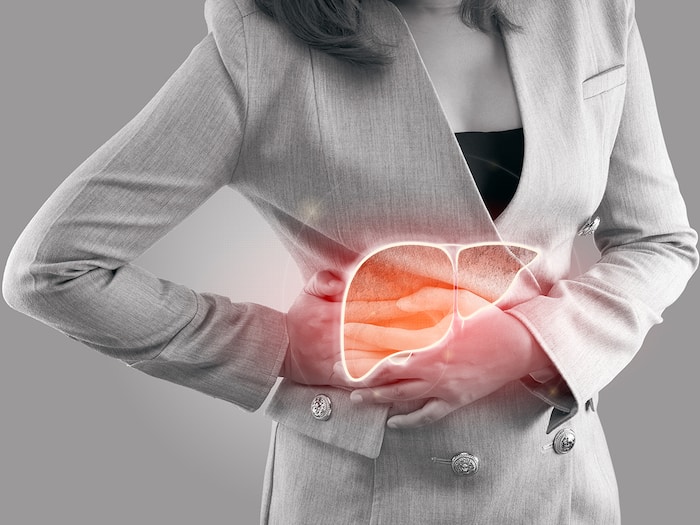Primary liver cancer can take a heavy toll on the entire being. Here’s everything you need to know about the deadly disease.
Primary liver cancer, also known as hepatocellular carcinoma (HCC), is a form of cancer that originates in the liver, the largest organ in the body. Cancer is one of the leading causes of death in healthcare worldwide. Millions of people die every year from this deadly disease. Tumors can grow in any part of our body.
Our body usually gives us signals when something is not functioning properly. Likewise, these symptoms can cause liver cancer and it is important to know to have better awareness.
Primary liver cancer: causes and symptoms
- Chronic Hepatitis B infection: Chronic hepatitis B infection is the leading cause of primary liver cancer worldwide. The hepatitis B virus (HBV) causes inflammation and scarring in the liver, which increases the risk of developing cancer over time.
- Chronic hepatitis C infection: Chronic hepatitis C infection is another important risk factor for primary liver cancer. Like HBV, the hepatitis C virus (HCV) causes liver inflammation and scarring, which increases the risk of developing cancer.
- Cirrhosis: Cirrhosis is a serious liver disease characterized by extensive scarring and impaired liver function.
- Heavy alcohol use: Excessive alcohol consumption is an important risk factor for primary liver cancer. Alcohol damages liver cells and promotes inflammation, which increases the risk of cancer development.
Symptoms
- Unexplained weight loss: Without trying, it can often be an early sign of primary liver cancer. The cancer can suppress appetite and disrupt the body’s ability to absorb nutrients, leading to weight loss.
- Loss of appetite: Persistent loss of appetite, even with favorite foods, may indicate primary liver cancer. The cancer can cause a feeling of fullness or early satiety, making it difficult to eat regularly.
- Abdominal pain or swelling: Pain or discomfort in the upper right abdomen, where the liver is located, may be a symptom of primary liver cancer. The pain may be dull or sharp and may worsen with deep breathing or movement.
- Jaundice: Jaundice is a yellowing of the skin and whites of the eyes, caused by a buildup of bilirubin, a waste product produced by the liver. Jaundice can be an early sign of primary liver cancer, especially if accompanied by other symptoms.
- Fatigue: Excessive fatigue and weakness that persist even with rest and adequate sleep may be a symptom of primary liver cancer. The cancer can disrupt the liver’s ability to produce energy and metabolize nutrients, leading to fatigue.
Preventive tips
- Vaccination: Vaccination against hepatitis B is a crucial preventive measure against primary liver cancer. The hepatitis B vaccine is safe and effective in preventing HBV infection, a major risk factor for liver cancer.
- Moderate alcohol consumption: Limiting alcohol intake can significantly reduce the risk of primary liver cancer.
- Safe Food Handling Practices: Good food storage and handling practices can prevent aflatoxin contamination. Store grains, nuts and other sensitive foods in airtight containers in a cool, dry place to minimize mold growth.
- Regular checks: Regular checkups with your doctor can help detect early signs of liver disease, including hepatitis B or C infection, which can then be treated to reduce the risk of primary liver cancer.
It is important to note that these symptoms can also be caused by other conditions, so it is crucial to consult a healthcare provider for proper diagnosis and treatment. Early detection and treatment of primary liver cancer can significantly improve the chances of successful treatment and long-term survival.


